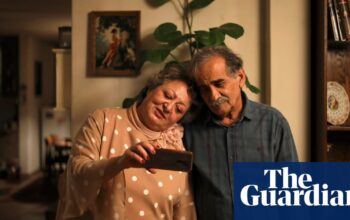Michel Blanc, beloved by generations for bringing a comic quality to even his saddest characters including losers and hypochondriacs, died on Friday aged 72, his family told AFP.
President Emmanuel Macron paid tribute, saying: “He made us cry with laughter, and moved us to tears”, and calling him “a monument of French cinema”.
Blanc is remembered for his breakthrough role in Les Bronzés (aka French Fried Vacation), a 1978 comedy about holidaymakers trying to escape their everyday problems and looking for romance at a holiday resort in Ivory Coast. Blanc’s character, Jean-Claude Dusse, is an awkward bachelor and bad harmonica player with an orange belt in karate who hopes to seduce women but can’t pull it off.
“He was a fabulous actor who made us laugh,” Prime Minister Michel Barnier said, adding that news of Blanc’s death had made him “very emotional and very sad”.
Blanc’s trademark bald head and moustache appeared in several other comedies, but he also feared, after Les Bronzés spawned two sequels, that he would be typecast as a lovable deadbeat forever.

“It was clear that the Jean-Claude Dusse role suited me,” he told Paris Match magazine this year. But he added: “I got scared very fast that it would stick to me my whole life.”
Blanc branched out into serious film roles, theatre, screen-writing and directing, and became one of only a handful of people to win both an acting award and a screenplay award at the Cannes film festival. His best actor award came for the 1986 Bertrand Blier film Tenue de Soirée, and the screenplay nod in 1994 for his metatextual comedy Grosse Fatigue.
“He was the sickly French guy that you just can’t keep down,” said Gilles Jacob, the Cannes Festival’s former president, adding he hoped that Blanc’s popular successes would not make the public forget his serious work, such as the acclaimed and haunting Monsieur Hire in 1989.
Blanc, who was sometimes called a “sad clown” in media, said the description missed the mark. “I’m not a sad clown at all, I’m a worried clown” he told French culture magazine Telerama.
“And who isn’t worried? What is the human condition? It is not knowing why we are here, and not knowing how we will die,” he said.
Source: theguardian.com


